
Another Liberalism contributes an original perspective to debates about the nature and foundations of liberal thought. In it Nancy Rosenblum describes the dynamic of romanticism and liberalism as one of mutual opposition and reconciliation. She argues that romanticism sees liberalism as cold, contractual, and aloof. And conventional liberal legalism disdains romanticism’s longing for all that is personal, unique, and expressive.
We learn, however, that romanticism, chastened by its excesses and frustrated by its failures, can “come home” to liberalism. We also learn that liberalism can accommodate individuality and expressivity, reclaiming what it had repressed. Rosenblum creates a typology of romantic reconstructions of liberal thought: heroic individualism, communitarianism, and a new face of pluralism.
The author draws on nineteenth- and twentieth-century philosophy and literature: on Thoreau, Humboldt, Constant, Stendhal, and Mill, among others, and on contemporary political theorists for whom romanticism is a source not only of aversion to liberalism but also of resources for reform.
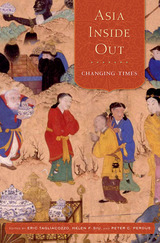
The first of three volumes surveying the historical, spatial, and human dimensions of inter-Asian connections, Asia Inside Out: Changing Times brings into focus the diverse networks and dynamic developments that have linked peoples from Japan to Yemen over the past five centuries.
Each author examines an unnoticed moment—a single year or decade—that redefined Asia in some important way. Heidi Walcher explores the founding of the Safavid dynasty in the crucial battle of 1501, while Peter C. Perdue investigates New World silver’s role in Sino–Portuguese and Sino–Mongolian relations after 1557. Victor Lieberman synthesizes imperial changes in Russia, Burma, Japan, and North India in the seventeenth century, Charles Wheeler focuses on Zen Buddhism in Vietnam to 1683, and Kerry Ward looks at trade in Pondicherry, India, in 1745. Nancy Um traces coffee exports from Yemen in 1636 and 1726, and Robert Hellyer follows tea exports from Japan to global markets in 1874. Anand Yang analyzes the diary of an Indian soldier who fought in China in 1900, and Eric Tagliacozzo portrays the fragility of Dutch colonialism in 1910. Andrew Willford delineates the erosion of cosmopolitan Bangalore in the mid-twentieth century, and Naomi Hosoda relates the problems faced by Filipino workers in Dubai in the twenty-first.
Moving beyond traditional demarcations such as West, East, South, and Southeast Asia, this interdisciplinary study underscores the fluidity and contingency of trans-Asian social, cultural, economic, and political interactions. It also provides an analytically nuanced and empirically rich understanding of the legacies of Asian globalization.

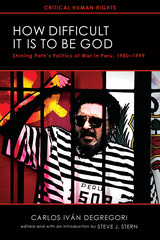
In How Difficult It Is to Be God, Carlos Iván Degregori—the world’s leading expert on Shining Path and the intellectual architect for Peru’s highly regarded Truth and Reconciliation Commission—elucidates the movement’s dynamics. An anthropologist who witnessed Shining Path’s recruitment of militants in the 1970s, Degregori grounds his findings in deep research and fieldwork. He explains not only the ideology and culture of revolution among the insurgents, but also their capacity to extend their influence to university youths, Indian communities, and competing social and political movements.
Making Degregori’s most important work available to English-language readers for the first time, this translation includes a new introduction by historian Steve J. Stern, who analyzes the author’s achievement, why it matters, and the debates it sparked. For anyone interested in Peru and Latin America’s age of “dirty war,” or in the comparative study of revolutions, Maoism, and human rights, this book will provide arresting new insights.

In the 1988 U.S. presidential campaign the word “liberal” was bandied about as though it were a term of abuse. Charges hurled from the political right and left accused liberalism of moral failing: liberalism lacks concern for good character and civic virtue; its preoccupation with private liberty and toleration is morally anemic and ultimately erodes shared public values. Against this background, philosophers and political theorists take stock of the historical varieties of liberal thought and of the present relation between liberalism and moral living.
Liberalism and the Moral Life presents the timely thoughts of twelve prominent scholars who are redrawing the map of liberalism: Richard Ashcraft, Benjamin R. Barber, Seyla Benhabib, William Galston, Amy Gutmann, Stephen Holmes, George Kateb, Steven Lukes, Susan Moller Okin, Nancy Rosenblum, Judith N. Shklar, and Charles Taylor. In essays that go beyond the conventional defense of liberalism based on moral skepticism or the possibility of discovering neutral principles, these writers consider possibilities for reinspiriting liberal thought. They offer fresh arguments for the moral status of individualism and argue that distinctively liberal virtues and practices sustain democracy, constituting a moral life that people share in common. Moving beyond theory, the authors point to a variety of institutional contexts within liberal democracy that provide moral education and opportunities for expressing commitment to substantive moral values.
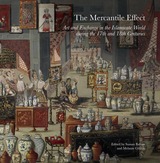
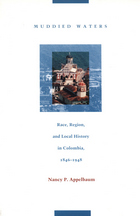
Nineteenth- and twentieth-century Colombian elite intellectuals, Appelbaum contends, mapped race onto their mountainous topography by defining regions in racial terms. They privileged certain places and inhabitants as white and modern and denigrated others as racially inferior and backward. Inhabitants of Riosucio, however, elaborated local narratives about their mestizo and indigenous identities that contested the white mystique of the Coffee Region. Ongoing violent conflicts over land and politics, Appelbaum finds, continue to shape local debates over history and identity. Drawing on archival and published sources complemented by oral history, Muddied Waters vividly illustrates the relationship of mythmaking and racial inequality to regionalism and frontier colonization in postcolonial Latin America.
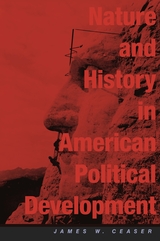
READERS
Browse our collection.
PUBLISHERS
See BiblioVault's publisher services.
STUDENT SERVICES
Files for college accessibility offices.
UChicago Accessibility Resources
home | accessibility | search | about | contact us
BiblioVault ® 2001 - 2024
The University of Chicago Press









